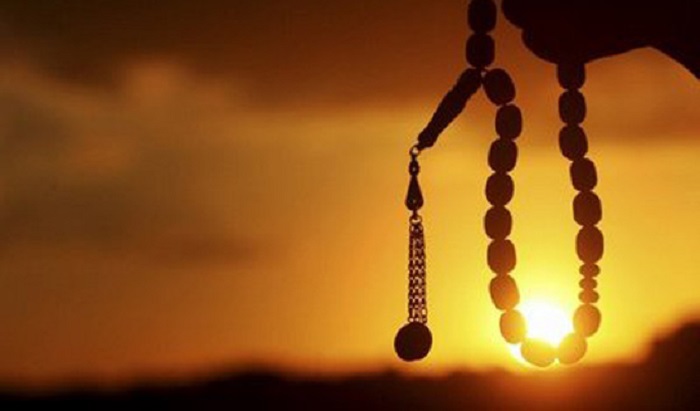By Yaseen Kippie
The topic of Sufism is one that is often misunderstood, but in South Africa, it is the reason we are still Muslim. Gatherings of dhikr, gadat and moulood are well known for inspiring Muslim slaves brought from Indonesia by the Dutch East Indian Company since the 1600’s.
While few were scholars, many maintained their identity as Muslims through the remembrance of Allah. But as a result of globalization, Islam in Cape Town has become somewhat cosmopolitan, with various groups including Sunni, Salafi and Shia Muslims, all claiming to follow the true path to Allah, with some subduing the influence of others.
Unity seems impossible, but those responsible for the continuation of Islam from generation to generation throughout the history of the Cape of Good Hope, are raising once again to tackle the scourge of extremist-based ideologies.
This has manifested in the form of a new initiative started by Ridaa Manuel and other members of the Naqshbandi Muhammadi Order South Africa. They have invited a number of groups to partake in a gathering focused on dhikr and the revival of Sufism among the youth. The dhikr brought together youth from the Naqshbandi, Ba’alawi, Shadhili and Qadiri spiritual orders.
There is an analogy that inspires us to spread dhikr:
“The example of a mother who has two children. The mother gives the one child warm butter chicken and roti, while giving the other one burnt cold akhni. The former loves the delicious taste of the food, while the latter spits the food out with disgust. Just as giving a child food without taste is unwanted, presenting Islam without spirituality will be rejected by people. But unfortunately this is whats happening these days. There are elements creeping in trying to remove spirituality from Islam, and we know that spirituality is a necessary part of Islam, causing our youth to see Islam as mere rules and regulations. That is why we find them everywhere else except in the circles of Dhikr.
We find them in nightclubs, taking part in so many social ills that are prevalent, our youth involved in drugs, alcohol abuse. These problems can be remedied. The example of one of these spiritual orders, the ‘Sarwari Qadiri Sultan Bahu Centre’, is a rehab centre with one of the highest success rates, and the main method they use is dhikr. This dhikr has brought hundreds of youth who have previously been in the darkness of these addictions, and they’ve come into the light of Islam using dhikr. All of these dhikrs will take place at these monthly gatherings. Another example is the Naqshbandi tariqa, under the auspices of Shaykh Yusuf da Costa, uses dhikr to call people to Islam in the townships. I urge everyone to come and experience this dhikr with these people who have been transformed by it.” – Ridaa Manuel
The first dhikr involved a talk by Haroon Michael Sugich, an American Muslim who spent 23 years travelling in Makkah and the Middle East, and the author of the book “Signs on the Horizons”.
He started his talk with a very strong statement that all of the problems faced by Muslims today is a result of the removal of spiritual purification.
VOC journalist Yaseen Kippie, a student of religion, philosophy and politics, also spoke on the importance of the youth as the transformative element within society, reviving the way of Tuan Yusuf of Macassar.
“This is not going to be a once-off thing. This will be a monthly gathering with various spiritual orders uniting in this effort, at different masajid and different speakers,” Manuel stated.
Talking about the social commitment needed by those on a path of Tasawwuf, Gouwah Manuel commented on the da’wah trips taken by the Naqshbandi members:
“I am part of youth group, with members all under the age of 30, who go to the townships, and we spread love and the ‘wonderness’ of God. This is the way to bring people to Islam, by touching their hearts. Even the non-Muslims join in to praise Allah. Being a youth, it’s simply amazing to see what dhikr can do for people. We add drums that vibrate people’s hearts with the remembrance of Allah. The women in the townships want to embrace Islam because they see how we dress and how we act as women. They love our scarves. And that is why these dhikrs are for women and for men.”
We need to be part of a practical development in society. When people who are underprivileged have dreams, are we contributors to their success or do we block them from achieving something that will benefit so many?
Manuel urged the Muslim community to us work together, initiate projects, and not sit back – keeping people asleep.
The Messenger of Allah [may peace be upon him] said, “the best of mankind are those who benefit others.” So, if you help one person, they could in turn benefit multitudes.
“Let us help others, whether it’s in achieving their dreams, in inviting them to this beautiful way of being in Islam, or merely buying them something small. For in this way, we are really helping ourselves.”
To get involved or for more information, contact Ridaa Manuel at riwindo@gmail.com. Alternatively, Whatsapp him on 074 061 7860.
VOC 91.3fm






 WhatsApp us
WhatsApp us 

